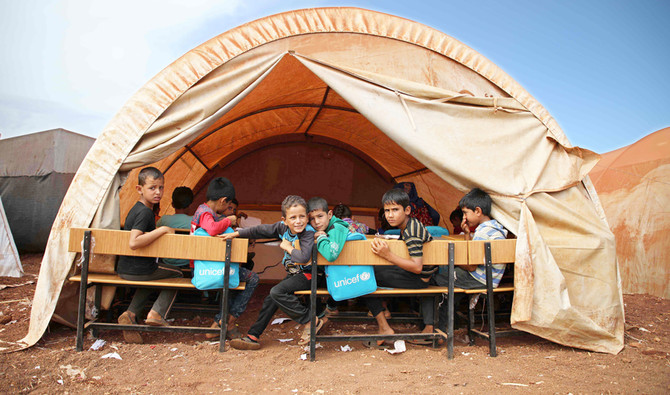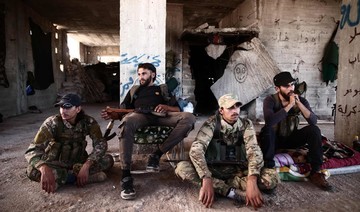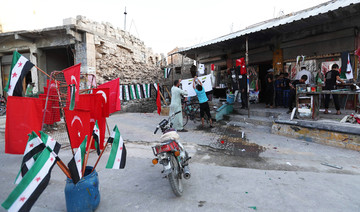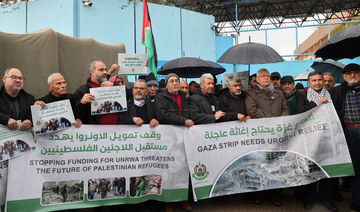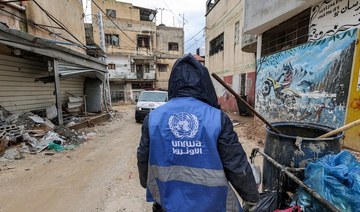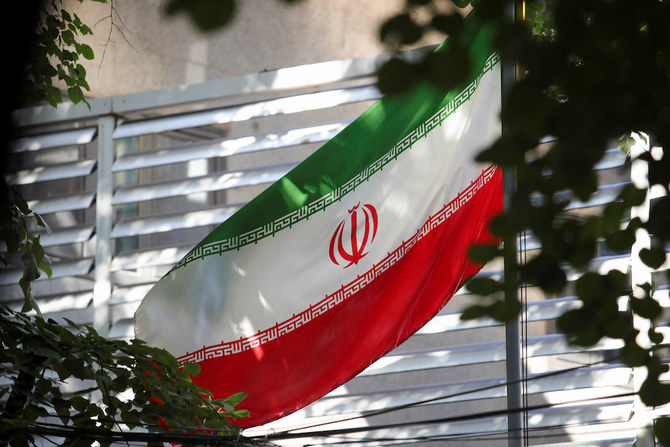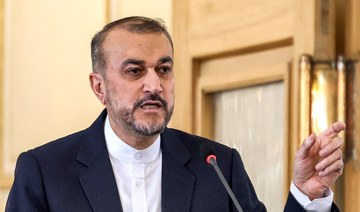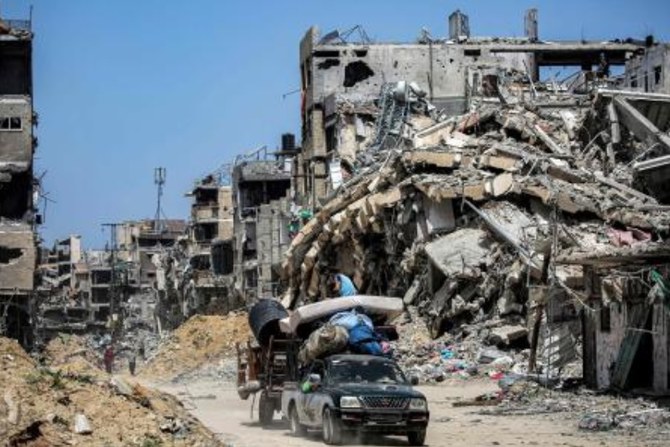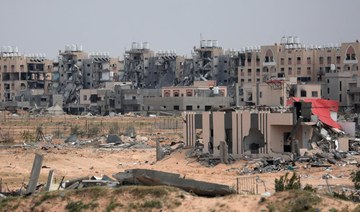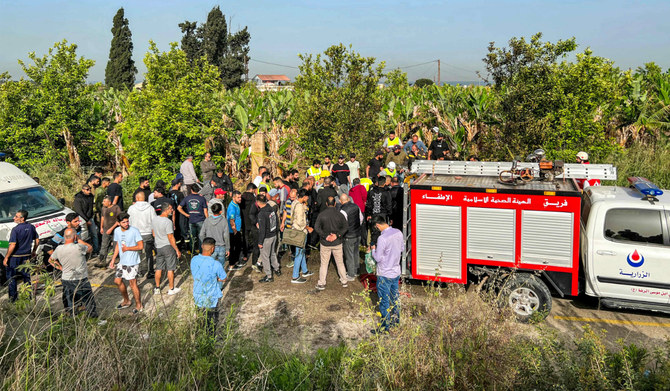ANKARA: Turkey will strengthen its observation points in Syria's northwest and work with Russia against radical groups, President Tayyip Erdogan said on Tuesday.
Speaking to members of his AK Party in Parliament, Erdogan also said that Turkey will hold a summit with Russia, Germany and France in October or November to discuss Syria, adding that Turkey will continue to seek a solution with the Syrian people, not the Russian-backed Syrian regime.
Meanwhile, the Syrian foreign minister said in remarks broadcast Tuesday that the Iranian ballistic missiles attack on militants in eastern Syria the previous day was part of "legitimate" cooperation between the two countries to combat terrorism.
Walid Al-Moallem's comments came during a wide-ranging interview with the Beirut-based Al-Mayadeen TV.
Iran's Revolutionary Guard launched six ballistic missiles as well as drone bombers into eastern Syria's Deir Ezzor province on Monday, targeting Daesh militants it blamed for an attack on a military parade in Iran last month.
The strikes were the second time Iran had used cross-border missiles inside Syria.
Last year, Iran also struck militant positions in Deir Ezzor’s town of Mayadeen and following another attack, in Tehran, that was blamed on Daesh.
But Monday's strikes come after Syrian regime forces and allied Iranian-backed militias gained control of the strategic border town of Boukamal late last year, likely improving Iran's intelligence and capabilities in the area.
The strikes were also seen as threat to Iran's regional adversaries at a time when Tehran's nuclear deal with world powers unravels.
"The Iranian missiles are in the framework of combatting terrorism," said Al-Moallem.
The Syrian regime and its allies, as well as the US-led coalition are separately battling Daesh, which still controls a sliver of land along Syria's border with Iraq.
The Britain-based Syrian Observatory for Human Rights, which monitors the war in Syria, said the strikes killed eight people in Hajin, a town still controlled by Daesh. It was not clear if all the killed were militants, the Observatory said, adding that one of the missiles hit a house that had been seized by Daesh.
The US military's Central Command acknowledged that Iranian forces conducted "no-notice strikes" in the area Monday and said it was assessing the damage. The coalition said no coalition forces were in danger.
Separately, Iran has struck a deal with Damascus to build a 400 million euro ($460 million) power plant in Syria's coastal city of Latakia, a potentially lucrative deal for Tehran to deepen its economic role after years of fighting in the Syrian conflict. Shunned by Western powers, the Syrian regime is looking to states such as Iran, Russia and China to play a major role in rebuilding the country, as the war heads toward its seventh year.
 Iran has provided critical military support to the Syrian regime, helping it regain control of swathes of the country. Iran experts say Tehran is now looking to reap a financial dividend.
Iran has provided critical military support to the Syrian regime, helping it regain control of swathes of the country. Iran experts say Tehran is now looking to reap a financial dividend.
Iran's Minister of Energy Reza Ardakanian was quoted as saying by the semi-official ISNA news agency that a memorandum of understanding was signed on Tuesday.
The project is to be launched next year, IRNA reported.
"Iranian private firms are keen to participate in energy projects in Syria and reconstruct its electricity grid," Ardakanian was quoted as saying by IRIB news.
In 2017, Iran and Syria signed an agreement to repair Syria's power grid. The agreement involved restoring the main control center for Syria's electricity grid in the capital Damascus.
Ardakanian said he was hopeful that a second credit line would be launched between the two countries.
Tehran opened a $3.5 billion credit line in 2013, and extended it by $1 billion in 2015, which economists say has helped keep the Syrian economy afloat.


